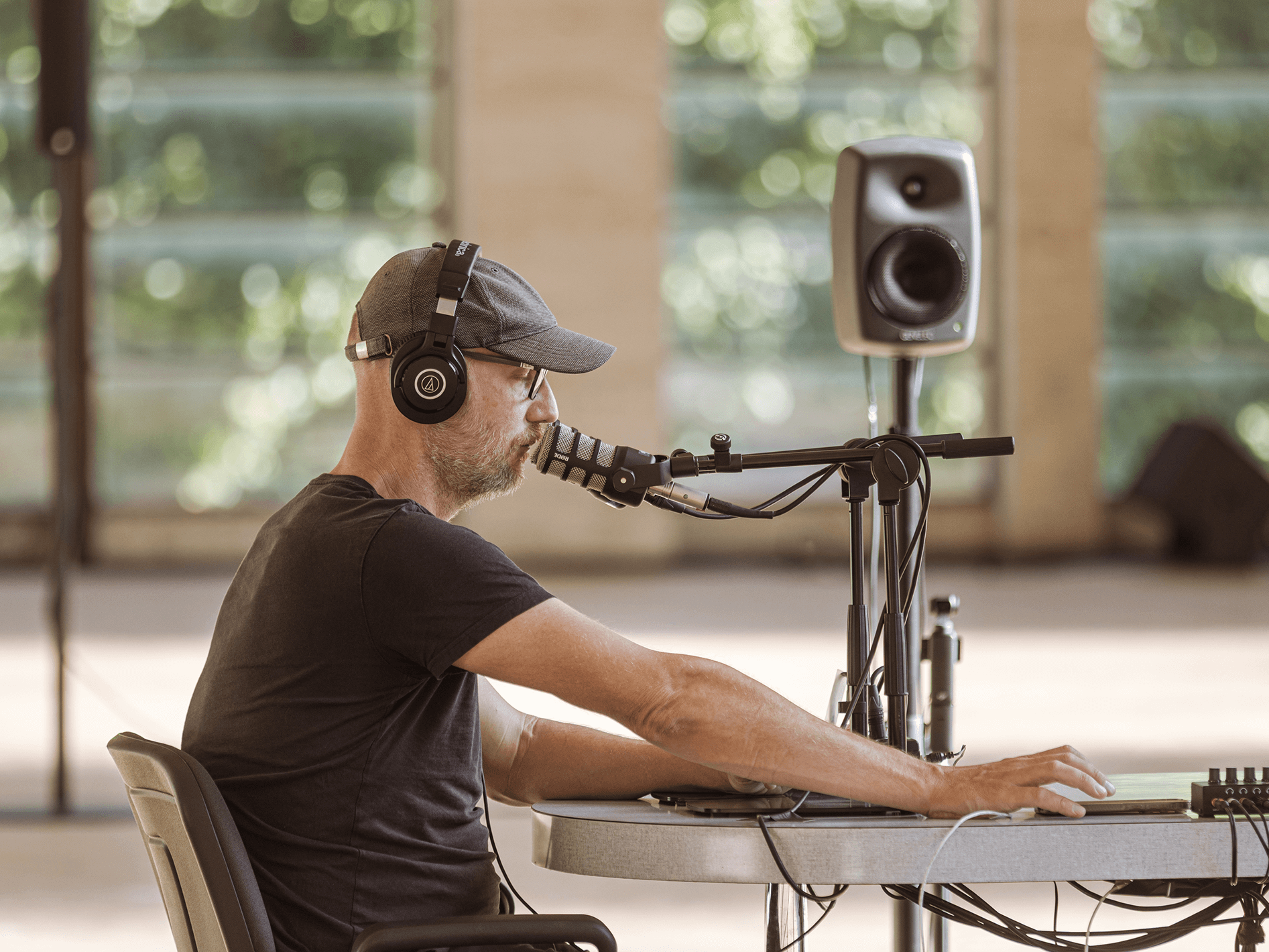
KILLING ME SOFTLY
The Killing Me Softly project takes as its raw material a set of songs (6 in all) that have marked the music history of the 20ᵉ century, and whose popularity has generated countless covers online on the web. Conceived as a multi-track, the installation presents the telescoping, accumulation and concentration of some twenty covers for a single standard, and gives voice to a choral enchâssement and a sonic traffic jam that drowns the original song in a sonic sludge. The tempo of each track (often different for each version) has not been altered by stretching the length and pitch of the song, but only cut and repositioned to synchronize it with the original version.
If the intention behind every covers production is indeed that of appropriation, differentiation and individualization, carried out in a fierce competition for the greatest number of views, it also appears to be one of the most blatant symptoms of the democratization of home studios and tutorial-based learning, where everyone can try their luck in the ball of more or less standardized interpretations still possible. The mass of individuals thus brought together in a single body gives rise to a mired, pasty cacophony of networks saturated with as many existences trying to extricate themselves.
SUPERFICIAL INTELLIGENCE
Long-lasting performance (with Lea Breitschmid and Inês Leal)
La Centrale, Saturday, September 20, 2025, 12 am - 6 pm
Connect via live streaming to the day's programs on a worldwide French-language radio network, without any distinction or prior knowledge of the programs, for 6 hours straight, mutating (via a third party) the words of the program's speakers and guests (political experts, psychologists, economists, artists, etc.) in order to respond in their place, projecting as many responses as possible, without falling into the trap of parody.
In the age of generalized AI and the concept of post-truth, what is the value of an individual's words on a specific issue? What can we really learn from the experts invited to speak on general-interest media (and the related constraints of accessibility for the greatest number of people)? Is it possible, despite increased specialization in one's field, to get to know a subject, avoiding subjective bias and integrating the full complexity of the world?
It's the notion of human expertise that's at stake in this live performance, which will reveal more or less convincing rhetorical acrobatics, attempts at self-legitimization, and the limits of mimetic projection.
Maximilien Urfer
Born in 1980
Based in Sion
Maximilien Urfer is an artist whose experimental practice extends across a wide range of media: video, photography, painting, writing, performance, installation and sound. His work explores questions of identity, mimetic language, contexts and notions of point of view. He frequently uses his own body as a medium, exploring hybrid narrative forms in which video becomes an archival tool.
This alternation of seemingly unrelated practices nurtures a form of ambivalence that he claims as a method of artistic permaculture. His studio is overflowing with musical instruments, testifying to the importance of musicality and improvisation in his approach.
Other artists

Barbezat & Villetard

David Horvitz

Marina Rosenfeld
Other artists

Annika Kahrs

Echoes of Archs - Owelle x Structurals









